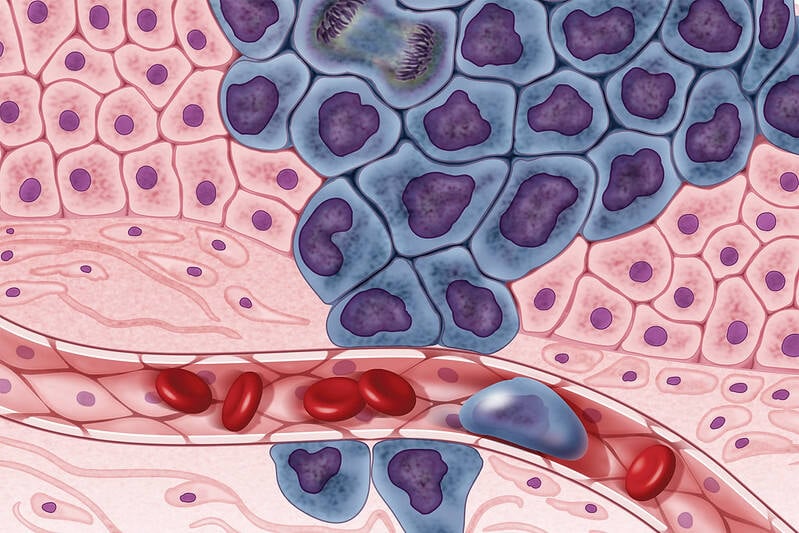A new study by Continental Hospitals in Hyderabad reveals a troubling health trend: many Indians are at high risk of developing colorectal cancer, with younger adults increasingly affected.
The three-year research examined thousands of patients through colonoscopy screenings. Doctors found pre-cancerous growths called polyps in 28.03% of men and 21.15% of women, totaling 25.27% of all patients screened.
“These polyps would develop into colorectal cancer if not detected and removed promptly,” notes the hospital’s report. This finding is significant as colorectal cancer is the third most common cancer worldwide and the second leading cause of cancer deaths.
Dr. Guru N Reddy, who led the study and is Founder-Chairman of Continental Hospitals, stresses the importance of prevention: “Because colorectal cancer has high risk of mortality, it is very important to follow preventive strategies by implementing screening colonoscopy as best practice in men and women aged 45 and above.”
The hospital’s screening program has already shown results. Besides removing potentially dangerous polyps from hundreds of patients, doctors also discovered 33 previously undiagnosed cases of colon and rectal cancers during routine screenings.
Younger People at Increasing Risk
While colorectal cancer typically affects people over 50, doctors are seeing a worrying shift toward younger patients. The disease is now increasingly diagnosed in people in their 30s and 40s, a trend observed across India.
This age shift challenges traditional screening guidelines and suggests more young adults should consider early testing, particularly those with risk factors.
Why Cases Are Rising
Several factors contribute to the growing colorectal cancer rates in India:
Modern diet changes play a major role. Many Indians, especially in cities, have shifted from traditional fiber-rich foods to processed meals high in unhealthy fats and red meat but low in fruits and vegetables. Fast food consumption has surged among younger adults.
Physical inactivity and obesity rates have increased with urbanization. Both significantly raise cancer risk.
Similar Posts
Family history matters too. People with parents, siblings, or children who have had colorectal cancer face higher risk themselves. Certain genetic conditions can cause the disease to appear at younger ages.
Chronic inflammatory bowel conditions like Crohn’s disease and ulcerative colitis also increase risk by causing ongoing inflammation in the digestive tract.
Warning Signs to Watch For
Colorectal cancer often develops slowly. Key symptoms include:
- Changes in bowel habits that last more than a few days
- Rectal bleeding or blood in stool
- Ongoing abdominal pain, cramping, or discomfort
- Unexplained weight loss
- Weakness and fatigue
- Feeling that the bowel doesn’t empty completely
Many people mistake these symptoms for minor digestive problems. Health experts warn against dismissing them, as early detection greatly improves treatment success.
Prevention Steps Everyone Can Take
The good news is that colorectal cancer is highly preventable:
Eat more fruits, vegetables, whole grains, and fiber. Cut back on red and processed meats.
Stay physically active with at least 30 minutes of moderate exercise most days.
Maintain a healthy weight. Obesity significantly increases cancer risk.
Limit alcohol consumption and avoid tobacco products.
Most importantly, get screened. Colonoscopy remains the most effective screening method as it allows doctors to both detect and remove polyps before they become cancerous.
“We diagnosed incidentally 33 colon and rectal cancers in patients who underwent screening colonoscopy,” Dr. Reddy points out, highlighting how screening catches cases that would otherwise go undetected until symptoms appear.
For most people without risk factors, screening should begin at age 45-50. Those with family history or other risk factors should discuss earlier screening with their doctor.
The Continental Hospitals study underscores that awareness and regular screening are powerful tools in fighting this disease. When caught early, colorectal cancer has high survival rates. The challenge remains getting more Indians to undergo timely screening.

Frequently Asked Questions
Colorectal cancer is a cancer that develops in the colon or rectum (parts of the large intestine). It’s concerning for Indians because a recent study by Continental Hospitals found that over 25% of screened patients had pre-cancerous polyps that could develop into cancer if not removed. The disease is also increasingly affecting younger Indians in their 30s and 40s, not just older adults as previously thought.
According to Dr. Guru N Reddy from Continental Hospitals, screening colonoscopy should begin at age 45 for most Indians. However, if you have family members who’ve had colorectal cancer or polyps, or if you have other risk factors such as inflammatory bowel disease, you might need to start screening earlier. It’s best to consult with your doctor about when you should begin screening based on your personal risk factors.
Key warning signs include: persistent changes in your bowel habits (diarrhea, constipation, or narrower stools that last more than a few days), rectal bleeding or blood in your stool, ongoing abdominal discomfort such as cramps or pain, a feeling that your bowel doesn’t empty completely, unexplained weight loss, and weakness or fatigue. Many people mistake these symptoms for minor digestive problems, but if they persist, you should consult a doctor promptly.
You can reduce your risk by maintaining a healthy lifestyle: eat more fruits, vegetables, whole grains and fiber-rich foods while limiting red and processed meats; exercise regularly (aim for at least 30 minutes most days); maintain a healthy weight; limit alcohol consumption; avoid tobacco products; and get regular screenings as recommended by your doctor. These preventive measures can significantly lower your risk of developing colorectal cancer.
Several factors are contributing to the rise in colorectal cancer among younger Indians. The primary reasons include: shifting from traditional fiber-rich diets to processed foods high in unhealthy fats and low in fruits and vegetables, increasing fast food consumption, rising obesity rates, more sedentary lifestyles due to urbanization, and possibly genetic factors. Environmental changes and chronic inflammatory conditions may also play a role in this concerning trend.
During a colonoscopy, you’ll first undergo bowel preparation to clean your colon. The procedure itself involves a doctor inserting a long, flexible tube with a tiny camera (colonoscope) into your rectum to examine the entire colon. If polyps are found, they can be removed during the same procedure. The examination typically takes 30-60 minutes, and you’re usually sedated so you feel little to no discomfort. It’s the most effective screening method because it allows doctors to both detect and remove pre-cancerous growths before they develop into cancer.

















